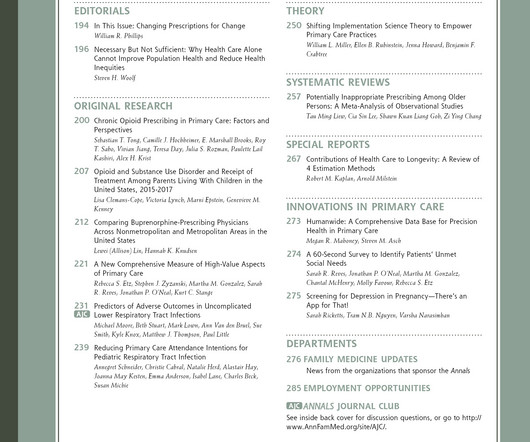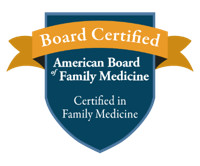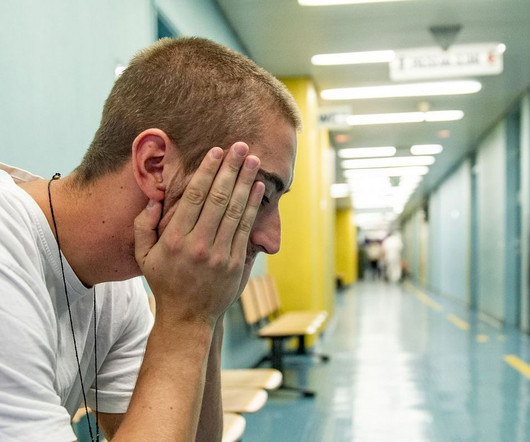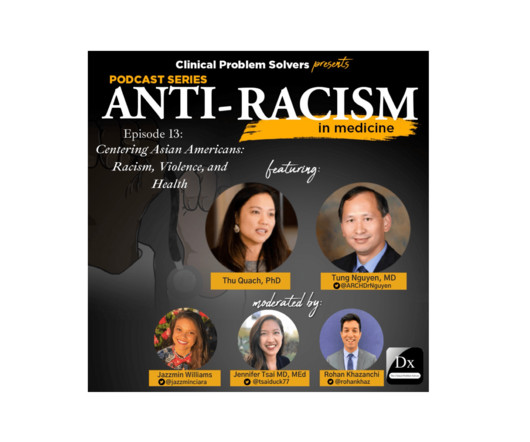Tobacco Use Screening In Community-Based Primary Care Clinics By Visit Modality During The Covid-19 Pandemic [Smoking cessation]
Annals of Family Medicine
NOVEMBER 20, 2024
In the years following the PHE, rates of screening for tobacco use decreased, particularly during telehealth visits. It is unknown if these changes in screening persist. Setting or Dataset: Electronic health record data from 541 community-based clinics across 17 states in the OCHIN network from 01/01/2019-5/31/2023.




















Let's personalize your content